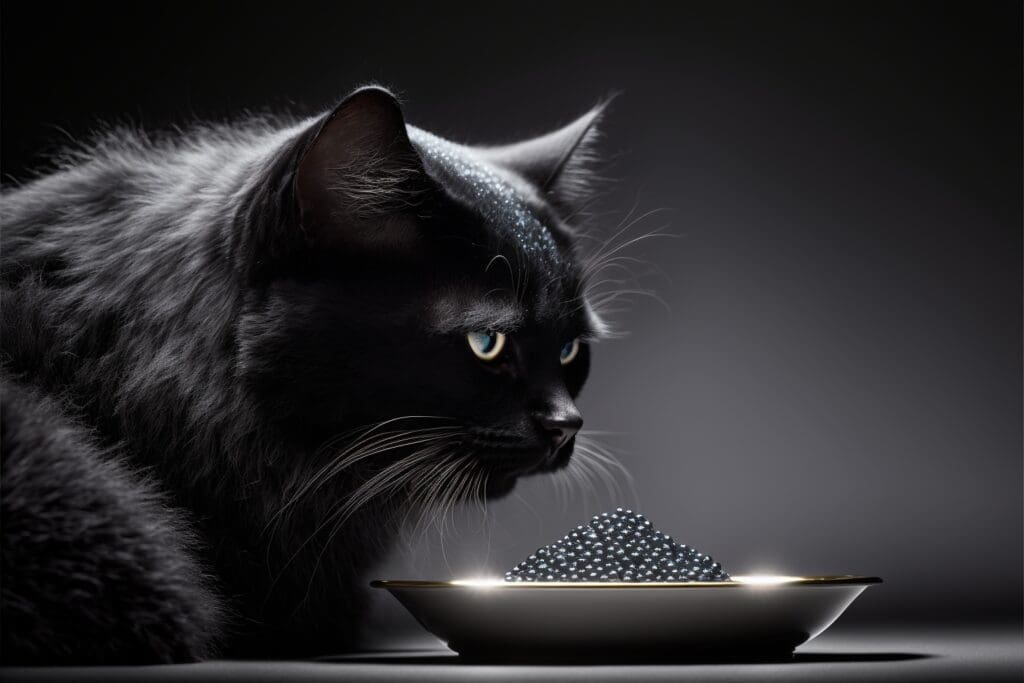Last Updated on January 6, 2023 by admin
Cats cannot eat caviar on a regular basis as it can put them at risk for salmonella if the eggs are consumed raw. Even if it is farm-raised and of lower quality, it is not ideal for cats to consume frequently. However, cats can occasionally have a treat in the form of caviar as long as it is given in small amounts. Caviar is high in salt and fat, so it should not be given as a substitute for a full diet. Other expensive human foods can also be dangerous for cats, so it is best to avoid these.
What Is Caviar?
Caviar is a luxury food item, traditionally made from sturgeon eggs. It can be either wild-caught or farmed, and is prized for its salty taste and texture. It is often served as a garnish or accompaniment to other dishes. Caviar can be eaten alone as a snack, or used in recipes to add flavor and texture to dishes. Though it may seem like an odd choice, there are some cats out there who love caviar as a treat.
What Is the Nutritional Value of Caviar?
Caviar is a luxury food item that is traditionally made from sturgeon eggs. It is high in protein, but it also contains large amounts of sodium and other minerals, such as iron and zinc. Caviar also contains omega–3 fatty acids and certain vitamins, such as vitamin A and vitamin D. While it is not a complete diet for cats, the occasional treat of caviar can provide some of the essential nutrients cats need to stay healthy. However, due to its high salt content, it should be given in moderation.
What Are the Health Risks of Feeding Cats Caviar?
It is important to consider the health risks of feeding cats caviar, as it is not a complete diet for cats. Cats cannot safely consume large amounts of caviar because it is high in salt, fat, and other unhealthy ingredients. Additionally, there is a risk of certain bacteria being on the caviar which can cause food poisoning-like symptoms. Therefore, if you choose to give your cat caviar, it should be given in moderation and only as an occasional treat.
How Much Caviar Can Cats Eat?
Now that you know the answer to the question “Can cats eat caviar?”, you should also be aware of the amount of caviar your cat can eat. As with any treat, it’s best to offer only a small amount of caviar to your cat. Too much salt and fat can lead to digestive issues and other health concerns. It’s best to feed your cat no more than a teaspoon of caviar per day as an occasional treat. If your cat develops a taste for caviar, it’s important to keep an eye on their diet to ensure they are getting a balanced meal every day.
What Kinds of Caviar Can Cats Eat?
When it comes to what kinds of caviar cats can eat, it’s important to note that artificial caviar is the safest option. Artificial caviar is made from vegetable oil and food coloring, so there is no risk of cats ingesting any bacteria from raw fish. Traditional caviar, however, is made from sturgeon roe, which can carry a risk of food poisoning-like symptoms due to containing salmonella bacteria. If you are going to feed your cat traditional caviar, it’s best to do so in moderation and only on very special occasions.
Are There Any Benefits to Feeding Cats Caviar?
While caviar is not recommended to be part of a cat’s daily diet, there are some potential benefits to feeding cats caviar as an occasional treat. Caviar is high in protein, and can provide important omega–3 fatty acids and other beneficial nutrients. It is also a luxurious treat that cats may find appealing. When feeding cats caviar, it is important to be mindful of its nutritional content and feed it in moderation.
What Are the Signs of Illness After Eating Caviar?
It is best to err on the side of caution and not feed your cat caviar as a regular treat. If, however, you do decide to give your cat caviar occasionally, it is important to monitor them for any signs of illness. Signs to look out for include vomiting, diarrhea, lethargy, loss of appetite, and other signs of discomfort. If you notice any of these symptoms after feeding your cat caviar, it is important to take them to the vet immediately. Your vet can assess your cat’s condition and determine whether the caviar was the cause.
